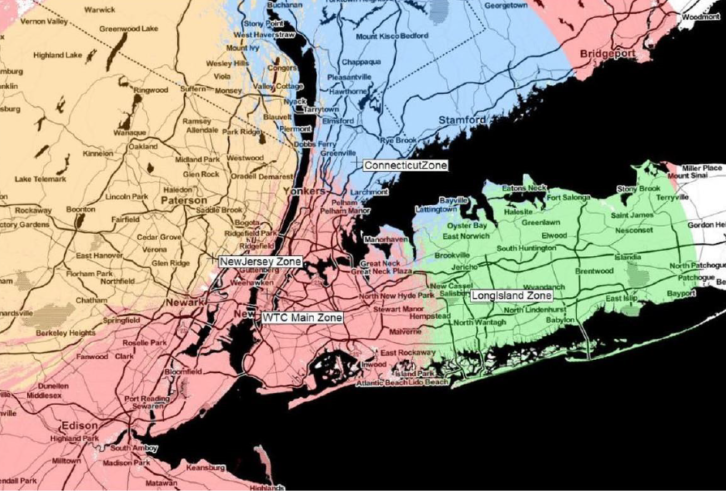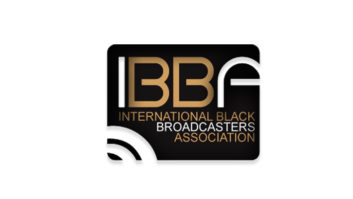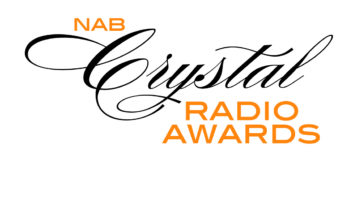In its strong opposition to allowing geo-targeting on FM boosters, the National Association of Broadcasters told the FCC it is worried about “cannibalization” among radio stations as well as harm to smaller and minority-owned stations.
Radio World is excerpting public comments filed to the FCC in a series of articles. Here, we summarize the section of the NAB filing about cannibalization.
“Although GBS presents its proposal as a permissive option, even voluntary adoption by only one or two stations is likely to disrupt the advertising market for other broadcasters in the same radio market,” NAB told the commission Wednesday.
“In particular, allowing geo-targeting could thrust broadcasters into a collision that disadvantages smaller stations less equipped to absorb the costs of implementing ZoneCasting effectively or reduced ad rates. GBS’s own filings demonstrates the risks.”
It pointed to an example from GBS showing a high-powered station broadcasting from downtown Manhattan that could use boosters to create zoned coverage areas in New Jersey, Connecticut and on Long Island:

“Although GBS offers this image to illustrate the station’s opportunity to use boosters to geo-target news and information to these respective areas, the station would also be able to sell geo-targeted ads,” NAB told the FCC.
“It is easy to foresee the negative impact on smaller stations licensed to Edison, N.J., and Mount Kisco, N.Y., and other distant suburbs. Such broadcasters must already compete with nearby stations for precious ad dollars from grocery stores, car dealers and other small businesses in the local area.
“If the booster rule is amended, they could be pitched into battle against much larger, New York City-based broadcasters for this critical local business. And contrary to GBS’s claims, some broadcasters believe that any such opportunity to sell zoned ads to new customers will largely be one-way because smaller stations do not have access to the capital necessary to implement geo-targeting as effectively, or capture enough new advertising business to justify the effort.”
[Related: “GBS Gathers Support for Geo-Targeting”]
NAB also questioned the usefulness of ZoneCasting for stations in small and mid-sized markets. It said its members in these markets view ZoneCasting as a “big city play,” at best.
“It would be unusual for small and mid-sized radio markets to have multiple pockets of population sufficient to support the investment required to deploy GBS’s system. GBS points to certain radio markets that cross state borders or cover multiple economic areas where geo- targeting could possibly make sense. Again, however, most broadcasters predict that larger stations would enjoy the lion’s share of any such benefits, at the expense of smaller stations.”
NAB argues that “nearly all” radio broadcasters consider GBS’s proposal “as a lose-lose proposition in which the only winners would be the technology provider and advertisers.”
The association also disputes that geo-targeting will help minority-owned broadcasters, a benefit that has been mentioned publicly several times by Commissioner Geoffrey Starks.
NAB acknowledged that public interest organizations led by MMTC have expressed support of GBS’s petition. “MMTC explained that minority station owners often entered broadcasting later than others, leading them to locate their tower sites located some distance from downtown. MMTC states that ZoneCasting would enable these broadcasters to target different programming to different audiences, and adds that such owners may also be able to entice small and minority owned businesses to purchase less expensive, zoned ads.”
NAB said it shares MMTC’s goals to help promote minority ownership of stations but says the booster rule change would likely be counter-productive.
“First, a minority broadcaster with a transmitter on the fringe of a market would already have the incentive and ability to obtain a booster so as to provide a stronger signal into the urban core of a market. Given that the FCC’s rules permit stations to deploy a booster at their convenience, we presume that any such broadcaster has already done so where the investment has been justified.”
NAB said that any incremental ad sales to small businesses from geo-targeting would not change that calculation, particularly in light of the risks and costs of implementing geo-targeting.
It noted that GBS has offered to provide vendor financing to certain FM stations, fronting the capital to design, build and operate a booster, in exchange for a share of the marginal ad revenue it generates.
NAB asked what would happen if GBS encounters financial problems and requires accelerated payment, and what would the station’s obligation be if revenues are insufficient to repay GBS or the station discontinues service.
“We understand that vendor financing has been used in other telecommunications contexts. However, to NAB’s knowledge, it would be highly unusual if not unprecedented for the FCC to alter a long-standing rule in order to approve a new broadcast technology based on the promises of a single, private company to fund its rollout.” It said the FCC should not rely on GBS’s about vendor financing plan.
“Finally, MMTC does not address the unintended consequences that ZoneCasting could impose on minority broadcasters. Just like other similarly situated, smaller radio stations, minority owned stations could face new competition from large stations in other parts of a market. There would be nothing to stop a large downtown station, with the resources to fund its own booster and effectively sell zoned ads, from building a booster near a minority-owned station and using the booster to seize ad dollars from small or minority-owned businesses in the area,” it wrote.
“Moreover, a larger station could better afford to charge very attractive prices for zoned ads to win such business. In the end, ZoneCasting could be little more than a vehicle for large stations to increase their dominance at the expense of smaller stations, including those owned by people who are members of historically underrepresented groups. Such an outcome would not serve the public interest in diverse radio service.”
[Related: “ZoneCasting Would Level the Playing Field for Radio”]







